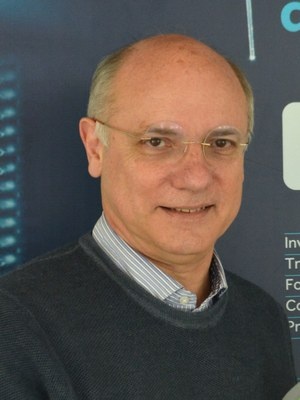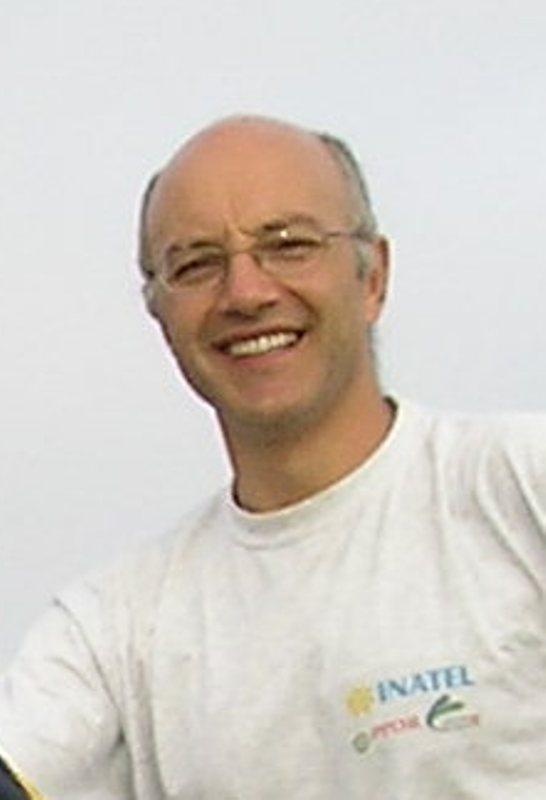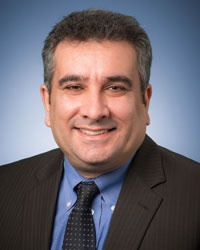Continuar com Facebook
Continuar com Email
Ao entrar, concordo com os Termos de uso e políticas da Sympla
Continuar com Facebook
Continuar com Email
Ao me cadastrar, concordo com os Termos de uso e políticas da Sympla
O evento já encerrou...
Escola de Altos Estudos da UFPB
Escola de Altos Estudos da UFPB
06 ago - 2019 • 15:50 > 09 ago - 2019 • 12:00
Evento encerrado
Escola de Altos Estudos da UFPB
06 ago - 2019 • 15:50 > 09 ago - 2019 • 12:00
Evento encerrado
Descrição do evento
O Programa de Pós-Graduação em Engenharia Elétrica– PPGEE/UFPB, em parceria com os Programas de Pós-Graduação em: Modelagem Matemática, da UNIJUÍ/RS, e, Engenharia de Energia, da UFRN/RN, aprovou no final de 2018, o projeto intitulado Smart Grid no contexto da Geração Distribuída, Armazenamento de Energia e Mobilidade Elétrica. no âmbito do Edital CAPES nº 14/2018, Programa Escola de Altos Estudos – EAE.
O Programa Escola de Altos Estudos tem por objetivo apoiar os Programas de Pós-Graduação brasileiros e promover a realização de visitas de curta duração a Instituições de Ensino Superior (IES) e Institutos ou Centros de Pesquisa e Desenvolvimento públicos brasileiros, por professores e pesquisadores de reconhecido prestígio internacional, atuantes no exterior, em todas as áreas do conhecimento.
Neste sentido, o evento contempla a realização de seis cursos com duração de 20 horas cada por pesquisadores de renome internacional.
Minicursos:
Course 02: Information theory and cognitive models contributing to smarter networks

Prof.Dr.Vladimiro Miranda
INESC/TEC, Univ. do Porto, Porto, Portugal
Dates of Attendance: October 15 to 22 (08:00 until 12:00).
Course Abstract: The basis of cognitive models; Construction of models; Information theory; Self-adaptive models.
Practical applications: a. Forecast of wind and solar energy; b. Forecast of consumption; c. Recovery of sensor signals; d. State estimation for large intelligent distribution systems and networks; e. Voltage control and reconfiguration;f. Identification of the state of keys; g. Diagnosis of faults in transformers, reliability and Monte Carlo and others; h. Systems training techniques, including "deep learning".
Course 03: Real-Time Networks

Prof. Dr. Luis Almeida
University of Porto , Portugal
Dates of Attendance: October 21 to 28 (08:00 until 12:00).
Course Abstract: Distribution is, nowadays, the de facto architectural choice in practically all computer-based application domains that support modern societies, from transportation to process control, factory automation, smart grids, and generally the Cyber-Physical Systems (CPS) domain. Distributed architectures place the underlying networks at the systems core, enabling the respective global behaviors and strongly impacting non-functional properties such as timing and fault-tolerance. This course will present an introduction to computer networks that are typical in CPS from a real-time perspective. The lectures include an initial presentation of general concepts in networks and then focus on the physical and data link layers, devoting particular attention to the medium access control. Then, the course will address the issue of traffic scheduling and its relationship with medium access control, showing typical schedulability analysis that can be used to derive a priori guarantees of traffic timeliness. A few paradigmatic protocols will then be presented and analyzed, including a reference to emerging real-time Ethernet profiles like the TSN set of standards, to the IEC 61850 standard for electrical substation communications, to the renewed interest on the Software-Defined Networking management paradigm and to the growing interest on wireless communication. Finally, the course will address a specific case study from the energy conversion domain, namely the design of a distributed architecture for a Multi-level Modular Controller.
Course 04: Hybrid and electric vehicles

Prof.Dr.Ali Emadi
McMaster University, Ontário, Canadá
Dates of Attendance: November 03 to 09
Course Abstract: This course provides an overview of the current status and future trends in the transportation industry. It begins with the history of the automotive industry and explains the need for a paradigm shift toward a sustainable solution. Parallels with other industries such as the telecommunications industry are highlighted, and it is explained how providing greater levels of empowerment for consumers is a powerful driving force for the next generation of electrified vehicles. This empowerment is part of a new paradigm in energy integrated with renewable energy sources, distributed generation systems, and smart grid. The course is then focused on the transportation electrification and how the paradigm shift began with more electric vehicles (MEVs), established by hybrid electric vehicles (HEVs), is gaining momentum by plug-in hybrid electric vehicles (PHEVs), and will be completed by electric vehicles (EVs). The motivation for the research, development, and commercialization of EVs, HEVs, and PHEVs will be explained and role of electric motors, power electronics, and energy storage systems will be highlighted. Powertrain configurations and powertrain components will also be presented. Throughout the presentation, related component-level as well as system-level challenges are explained, and possible solutions are recommended. Unprecedented opportunities in the areas of power electronics and electric motors will be highlighted.
Course 05: Optimization for Electric Engineering : Application to energy management of micro-grids and electric transportation

Prof. Dr. Vincent Reinbold
University Paris-Saclay
Dates of Attendance: November 03 to 09 (08:00 until 12:00).
Course Abstract: Present some fundamental notions of mathematical optimisation, such as: nature of problems, algorithms, tools and convergence properties. Give some insights and present numerical tools to enable students to apply those concepts to different engineering problems, including: energy management, power management or sizing problems. Present notions of energy and power management for micro-grids, storage systems, distributed renewable system, smart-grids and hybrid electric vehicles troughs some today’s industrial or research examples. Enable students to implement energy management systems based on optimization for simple use-cases..
Patrocínio:

Apoio:



Local
Universidade Federal da Paraíba - Auditório Multimídia do Centro de Tecnologia
Campus I , SN Loteamento Cidade Universitaria
João Pessoa, PB
Sobre o produtor
Programa de Pós-Graduação de Engenharia Elétrica da UFPB
Métodos de pagamento
Parcele sua compra em até 12x
Compre com total segurança
Os dados sensíveis são criptografados e não serão salvos em nossos servidores.

Precisando de ajuda?
Acessa a nossa Central de Ajuda Sympla ou Fale com o produtor.
























































































